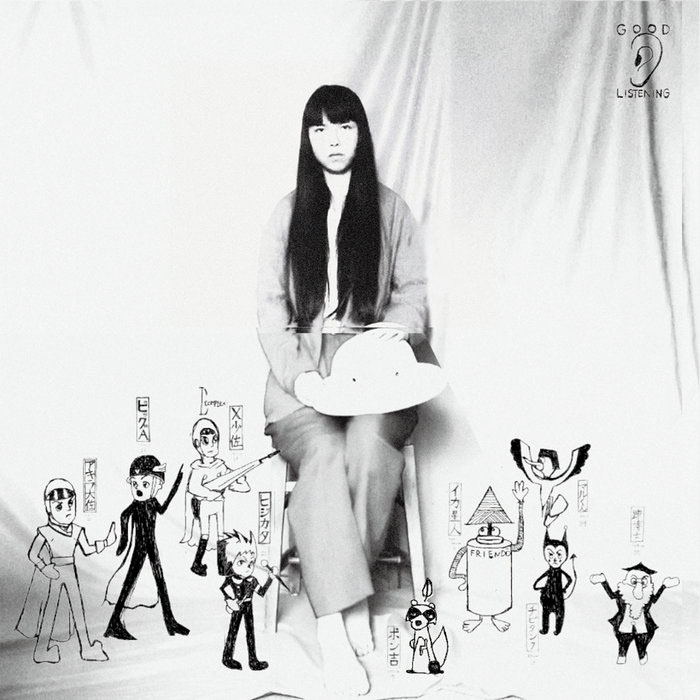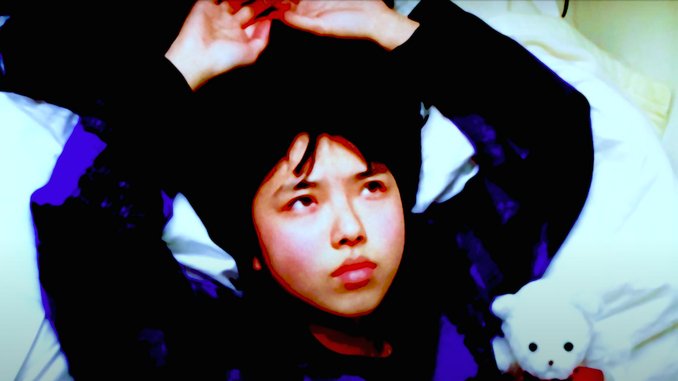
Nana Yamato’s life changed when she stumbled into BIG LOVE RECORDS, a record store located in Harajuku, Tokyo.
Originally reviewed at From the Intercom.
Born and raised in Chiba, Japan, a rural city that Yamato describes as having “no culture,” Yamato moved to Tokyo in 2019. There, in that record store where she worked, Yamato found both the inspiration and freedom needed to create her first album, Before Sunrise.
Before Sunrise is a brave and meaningful first venture: a culmination of Yamato’s passion, creativity and childhood experiences. Set in the precious and limited hours of the night, the album expresses Yamato’s desire for freedom and creates a place for herself in Tokyo’s underground indie scene with this imaginative and playful 12-track album.

Nana Yamato in “Do You Wanna.”
The album opens with “Do You Wanna,” a seemingly droll track which cleverly captures the mundane environment of Yamato’s earlier years back in Chiba. It begins with the dull tone of a synth bass repeating one note on end, followed by a hi-hat and mischievously playful chords on the piano. In this skillful articulation of theme and tone, Yamato juxtaposes her desire to play with the frustrating atmosphere she finds herself in day after day. While the motif sounds boring on paper, it manages to subvert my expectations and submerge me into her world.
“If” and “Burning Desire” continue down the same road. There’s a sense of lingering frustration combined with teetering playfulness buried within these songs. Yamato ventures outside the confines of her everyday persona, yet continues to lament her circumstances. She sings, “If you know what I mean / I will come back.” She wavers between independence and dependence: yearning for freedom yet restrained by her youth and status.

Nana Yamato in “Gaito.”
“Gaito” heads in a different, brighter direction. The mood is joyful, the tone softer and more relaxed. Yamato sounds settled into her space, a feeling that is palpable in the music production. She laments, “I don’t want to be with you,” and leaves one curious about who she is speaking to. The texture and sound of “Leaving” step to a different beat than the four songs that precede it, precisely because it lacks a drum beat. Instead, the beat is replaced by the soft strumming of a guitar beneath layers of vocals and an electric guitar. There’s a wistfulness to her voice as she sings, “Leave me now / So I can be.” As the album’s most vulnerable song, “Leaving” allows Yamato to lower her guard, leaving the softest touch and clearest picture of her inner desires.
“Under the Cherry Moon” begins with what seems like an ordinary E major scale before capitulating into an A Lydian scale. It carries the feel of a fantasy playbook, a lone character giving a monologue beneath a cherry tree as a full moon hangs from the night sky. I pictured myself sitting by a playground, all alone but surprisingly okay with it. It sounds like a whimsical coming-of-age song, but there are traces of thoughtfulness within it. “The Day Song” sounds exactly as you’d imagine the final track on an album titled Before Sunrise to sound: the sun is out and Yamato is headed for school, once again an ordinary girl confined by society’s expectations of her. The warm, optimistic mood of “The Day Song” creates an interesting and natural contrast to the frustrated, dull mood that characterizes the beginning of the album.
Through the album, Yamato manages to find and create short glimpses of unadulterated joy amidst the every day, which perhaps feel a little short-lived-–but so, too, are the hours before sunrise. A pervasive sense of adulthood and the responsibilities that come with it linger close to the horizon, giving the creation of Before Sunrise a precious touch.
